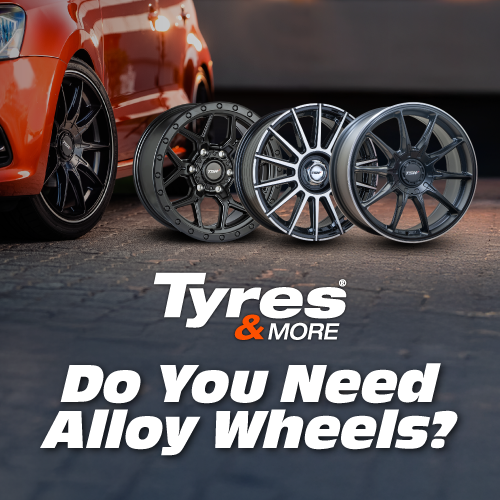Do You Really Need Alloy Wheels? Pros and Cons Explained
Let’s face it—when it comes to car wheels, alloys are the rockstars. They shine, they turn heads, and they come in more styles than a fashion week runway. But are they all glitz and glam, or is there some solid substance behind the sparkle?
At Tyres & More®, we get this question a lot: “Should I upgrade to alloy wheels?” And the answer is—well, it depends. Let’s break down the facts (with a bit of fun) so you can decide if alloys are the right match for your ride.
What Are Alloy Wheels?
In simple terms, alloy wheels are made from a blend of aluminium or magnesium, which makes them lighter and more stylish than the traditional steel wheels. Think of them as the sports shoes of the motoring world—sleek, performance-focused, and sometimes, a little more high-maintenance than your everyday takkies.
The Pros of Alloy Wheels
- They Look the Business
There’s no denying it—alloys are easy on the eyes. Whether you’re going for sporty, sleek, or something that screams “Look at me!”, there’s a design out there for you. They can take an ordinary car and give it that “premium package” feel—even if your radio still only gets AM.
- They Improve Performance
Alloys weigh less than steel wheels, which means better acceleration, improved handling, and less stress on your suspension. Basically, it’s like your car’s been to the gym and skipped leg day—in a good way.
- Better Heat Dissipation
Alloys help keep your brakes cooler by allowing more airflow. Why does that matter? Because cooler brakes = better performance and less wear. It’s like giving your brakes a mini holiday.
- They Resist Rust
Unlike steel wheels that can get crusty in wet or coastal conditions, alloys hold up much better against corrosion. So yes, your wheels can stay good-looking even when the weather isn’t.
The Cons of Alloy Wheels (with a Reality Check)
- They’ll Cost You a Bit More
Alloy wheels are typically more expensive than steel wheels—kind of like ordering the gourmet burger instead of the plain old cheeseburger. Both will get you where you’re going, but one comes with a bit more flavour (and flair).
- Not All Alloys Are Built the Same
Some everyday alloy wheels, especially lower-cost, generic options, can be more prone to cracking or denting if they take a hard knock from a pothole or kerb. This is where doing your homework really pays off.
If you’re investing in alloys, it’s essential to buy from reputable, well-established brands like TSW, Racing Hart Concepts, or other proven manufacturers. These brands engineer their wheels with durability, structural integrity, and road conditions in mind—especially important here in South Africa, where our roads aren’t always as smooth as we’d like.
Cheap, low-quality alloy wheels might look the part, but they often lack the strength and testing behind premium brands—and that can cost you more in the long run.
- Off-Roading? Choose the Right Alloys
While it’s true that steel wheels have traditionally been seen as the go-to for brutal terrain, off-road-specific alloy wheels like Black Rhino and Fuel have flipped that idea on its head. These are purpose-built to handle heavy impacts, rough trails, and fully loaded 4x4s with ease. So if you’re planning to head into the wilderness, just make sure you’re choosing the right alloy wheels for the job—and we’ll help you do just that.
Final Thought
Alloy wheels aren’t just about looks—they can offer real performance benefits, even off-road, if you choose the right ones. Whether you’re cruising the coast, commuting in comfort, or exploring rugged mountain trails, there’s an alloy wheel to suit your lifestyle. The key is making the right choice—and that’s where Tyres & More® comes in. Visit www.tyresandmore.com for a store near you.





